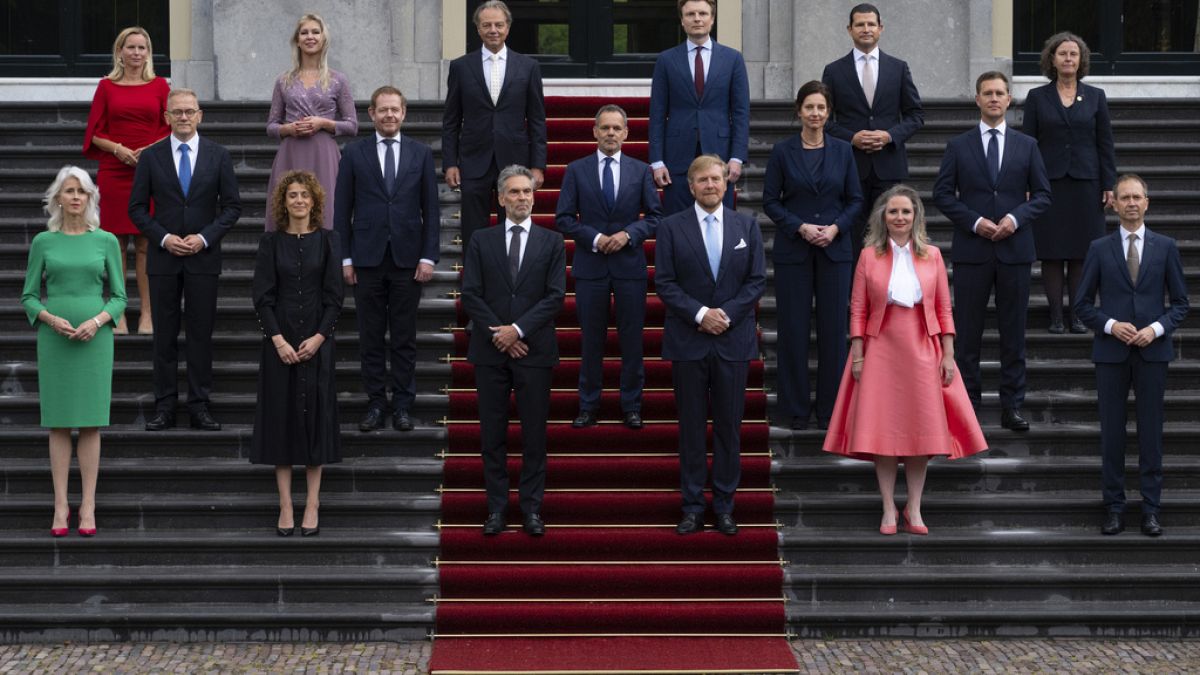The radical right continues to expand its power in the EU, as shown by the new government in the Netherlands, which took office this Tuesday, and the results of the first round of elections in France. This expansion could have an impact on the way decisions are made in institutions in Brussels.
Governments in Member States that have radical right-wing and Eurosceptic political forces within them will be able to choose one of two paths to exert their influence on the future of the European Union, according to Dave Sinardet, political scientist at the Free University of Brussels, interviewed by Euronews .
“On the one hand, they could hollow out European politics from within. On the other hand, these far-right leaders may begin to understand that they also need the European Union to be able to fulfil a series of promises they made to their national electorate , especially in terms of security and immigration”, said the scientist.
Giving Dick Schoof, former head of the secret service agency, the head of government, this Tuesday, was the solution found to have a new executive operational in the Netherlands after the victory of the far-right Party for Freedom , led by Geert Wilders, in the elections seven months ago.
The formal agreement creating the new coalition, titled ‘Hope, Courage and Pride,’ introduces strict measures for asylum seekers, eliminates family reunification for refugees and seeks to reduce the number of international students studying in the country.
A position that will have an impact on the way in which the EU Migration and Asylum Pact will be implemented in this country and be a reference for other Member States critical of the recently approved pact.
“In the case of migration policies, we have seen positions taken by the European People’s Party (centre-right) that are increasingly radical. And as for the Green Deal, the pause button was pressed a few months ago, before the European elections. So , the success of the extreme right is already something that is being translated into European policies in different ways”, explained the political scientist.
France next?
Hungary is the only Member State with a radical right party with a majority in power. In addition to the Netherlands, the far right is part of coalition governments in Italy, Finland, Czechia and Croatia. France could be the next to join the trend given the results of June 30th.
If the second round, on July 7, confirms the victory of the National Union, centrist president Emmanuel Macron will be more isolated. Macron would control fewer internal policies, such as those relating to the economy and justice, for example, and would have less influence in the European Council, which brings together the leaders of the 27 EU countries.
“What is clear is that French President Emmanuel Macron is very weakened by the current election results and this will probably not really change next Sunday,” says Dave Sinardet.
“He will, in fact, be a weakened president around the European table, which may also have an impact on the German-French axis, which historically and still today is one of the main driving forces of European politics”, he added.
A political dossier cannot be approved when four member states, representing 35% of the EU population, abstain or vote. In addition to migration and the Green Deal, some of the areas that could be most affected are the management of the war in Ukraine and support for candidate countries for EU membership.
But on these topics, the lack of common points of view may make it difficult to change the course of action: “The leaders of far-right governments can obstruct the functioning of the EU, but these leaders are not necessarily aligned on all issues, in particular when it comes to international politics and, for example, the war in Ukraine. Therefore, no It is clear whether they will always be able to find a compromise between themselves”, says the professor.
On the other hand, some far-right leaders even have a reputation for being quite constructive in the EU, as is the case with Italy’s Prime Minister, Giorgia Meloni.
The current president of the European Commission, Ursula von der Leyen, often highlights that she is pro-European, pro-rule of law and pro-Ukraine, and that she can play an essential role in European policies over the next five years.

